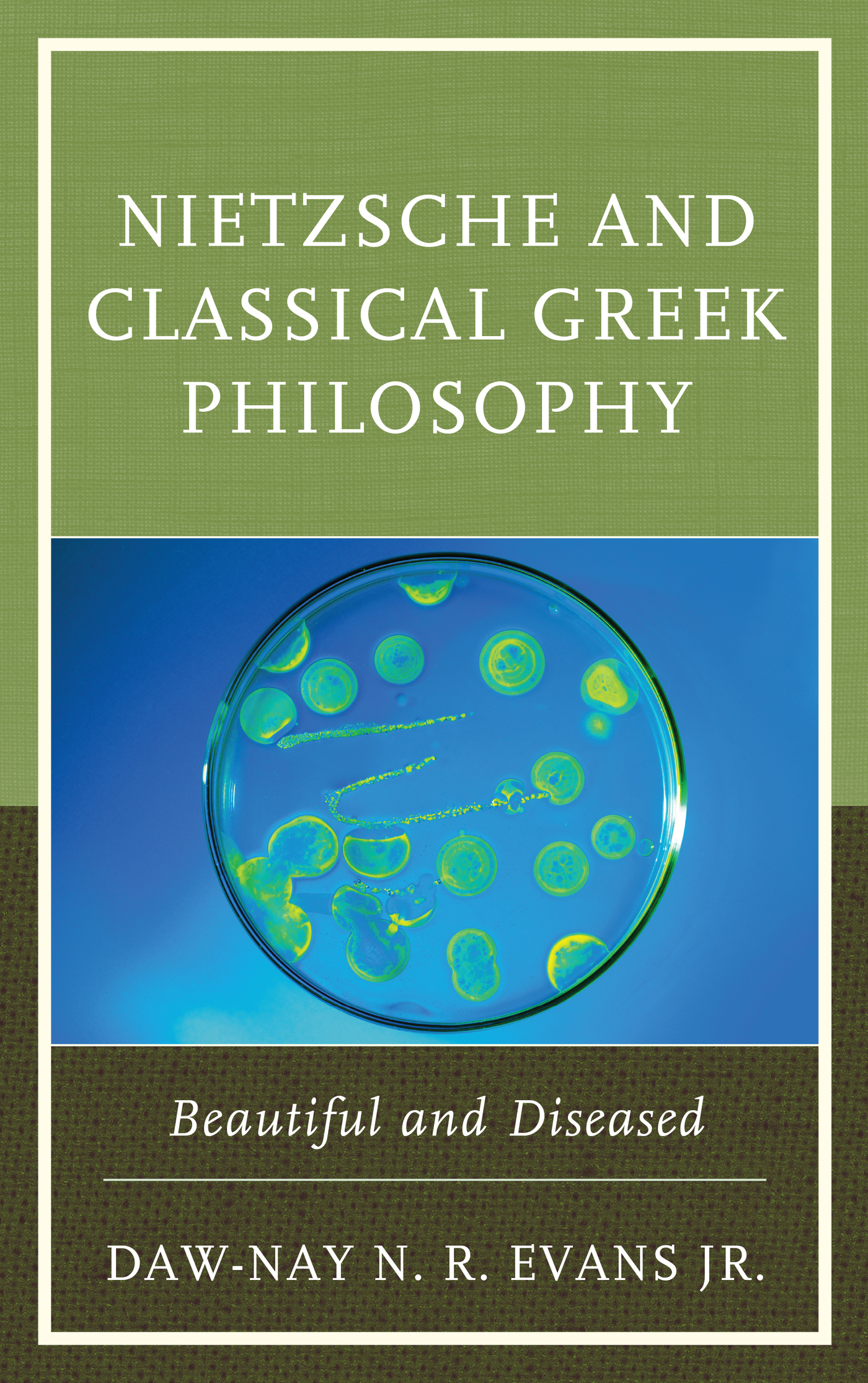Nietzsche and Classical
Greek Philosophy
Nietzsche and Classical
Greek Philosophy
Beautiful and Diseased
Daw-Nay N. R. Evans Jr.
LEXINGTON BOOKS
Lanham Boulder New York London
Published by Lexington Books
An imprint of The Rowman & Littlefield Publishing Group, Inc.
4501 Forbes Boulevard, Suite 200, Lanham, Maryland 20706
www.rowman.com
Unit A, Whitacre Mews, 26-34 Stannary Street, London SE11 4AB
Copyright 2017 by Lexington Books
All rights reserved. No part of this book may be reproduced in any form or by any electronic or mechanical means, including information storage and retrieval systems, without written permission from the publisher, except by a reviewer who may quote passages in a review.
British Library Cataloguing in Publication Information Available
Library of Congress Cataloging-in-Publication Data
Names: Evans, Daw-Nay N. R., 1974- author.
Title: Nietzsche and classical Greek philosophy : beautiful and diseased / by Daw-Nay N. R. Evans Jr.
Description: Lanham : Lexington Books, 2016. | Includes bibliographical references and index.
Identifiers: LCCN 2016045232 (print) | LCCN 2016046142 (ebook) | ISBN 9781498502795 (cloth : alkaline paper) | ISBN 9781498502801(electronic)
Subjects: LCSH: Nietzsche, Friedrich Wilhelm, 18441900. | HeraclitusInfluence. | Socrates. | Plato. | Aristotle. | Philosophy, Ancient.
Classification: LCC B3317 .E88 2016 (print) | LCC B3317 (ebook) | DDC 193dc23 LC record available at http://lccn.loc.gov/2016045232
 TM The paper used in this publication meets the minimum requirements of American National Standard for Information Sciences Permanence of Paper for Printed Library Materials, ANSI/NISO Z39.48-1992.
TM The paper used in this publication meets the minimum requirements of American National Standard for Information Sciences Permanence of Paper for Printed Library Materials, ANSI/NISO Z39.48-1992.
Printed in the United States of America
Acknowledgments
Gilbert NMO Morris and Rose Cherubin ignited my passion for philosophy as an undergraduate, and inspired me to greater heights than I could have imagined on my own. I would also like to thank William McNeill, Michael Naas, Sean Kirkland, Mark Gifford, and Deborah Mayo for supporting the manuscript and offering thoughtful criticisms at various stages. I have benefitted from presenting portions of this work over the years at the Ockham Society at Oxford University, the Boston College Department of Philosophy, the Continental Philosophy Workshop at the University of Chicago, and the Harper College Department of Philosophy. An early version of one section of chapter 1 was published as an article in Philosophy and Literature, 34/2 (2010), 340347 (Socrates as Nietzsches Decadent in Twilight of the Idols,) 2010 The Johns Hopkins University. The late Denis Dutton was kind and generous in helping me revise this piece for publication.
I would also like to thank the editorial team at Lexington Books, the anonymous reader they selected, and Robert Swanson of Arc Indexing, Inc. Jana Hodges-Kluck, Rachel Weydert, and Ashleigh Cooke offered much-needed assistance throughout the duration of the publishing process. My anonymous reader carefully read the manuscript and offered very helpful suggestions for improvement.
It goes without saying that I am deeply indebted to my colleagues Janet McCracken, Rui Zhu, Chad McCracken, and Lou Lombardi for their intellectual support and camaraderie. I am grateful to Lake Forest College for granting me a Hotchkiss Fellowship that enabled me to finish the manuscript.
Above all, I would to thank my family and friends, especially my mother Kathryn, Anne, and Chris.
Introduction
Friedrich Wilhelm Nietzsche (18441900) was born in the small town of Rcken, in the Prussian province of Saxony-Anhalt which is located in what was, until the fall of the Berlin Wall, known as East Germany. Nietzsches study of the classics began in earnest in 1858 at the famous Pforta boarding school in Naumburg. Upon leaving the Pforta school in 1864 Nietzsche wrote his first philological study in Latin, entitled De Theognide Megarensi (On Theognis of Megara).
From 1864 until 1868 Nietzsche studied classics with Otto Jahn and Friedrich Ritschl, who were considered to be among the leading classical philologists of the second half of the 19th century. Nietzsche's formal study of the classics ended in 1869 when, based upon the recommendation of his mentor, Professor Ritschl, he was offered a position as Professor of Classical Philology at Basel University at the unprecedented age of 24.
As a scholar, Nietzsche wrote several essays and lectures on Greek rhetoric, Latin grammar, Greek culture, and Greek philosophy, such as Homer and Classical Philology (1869), Socrates and Tragedy (1870), The Greek State (1871), The Greek Woman (1871), Introduction to the Study of the Platonic Dialogue (187174), Homers Contest (1872), The Pre-Platonic Philosophers (1872), Philosophy in the Tragic Age of the Greeks (1873), and Platos Life and Teaching (1876). The extent to which Nietzsche was immersed in the classics helps us to appreciate the significance of his relationship to Socrates, Plato, and Aristotle, and also provides important background information for understanding the nature of that relationship.
The purpose of this book is to understand Nietzsches view of Socrates, Plato, and Aristotle. There are few, if any, studies that deal exclusively withand provide an explanation of his relationship tothese philosophers. Furthermore, there are no studies on the implications of Nietzsches view of Socrates, Plato, and Aristotle with regard to the origin and development of his later philosophical thinking. Nietzsches relationship to classical Greek philosophy is arguably the most underappreciated area of Nietzsche studies. In a section entitled What is Needed in the first edition of his Nietzsche: Philosopher, Psychologist, Antichrist Kaufmannarguably the most important Nietzsche scholar of the 20th centuryadmits that we still need scholarly and perceptive studies of some aspects of Nietzsches thought and influence that have never been explored adequately. For example, Nietzsches... early philologica. This call to scholarly and philosophical arms was made in 1950, and with only a few exceptions we have yet to heed that call.
The framework for interpreting Nietzsches attack on Socrates, Plato, and Aristotle can be located in Nietzsches unique style of argumentum ad hominem, which he launches against all three philosophers. The very last manuscript Nietzsche sent to his publisher C.G. Naumann was Ecce Homo. This is the only text where Nietzsche reflects on the significance of his past works, the influence of his parents, and the life circumstances that cultivated and shaped the man he became. Besides being a parody of those who write autobiographies as well as a reflection on Nietzsches own life, the work provides the careful reader with Nietzsches strategy for understanding his polemics against his predecessors. In the first essay in Ecce Homo, Why Am I So Wise, Nietzsche says that he is warlike by nature. Furthermore, he writes: [t]he strength of those who attack can be measured in a way by the opposition they require: every growth is indicated by the search for a mighty opponentor problem; for a warlike philosopher challenges problems, too, to single combat (EH I:7). Nietzsche unravels this statement in what he dubs his practice in war, which he claims can be reduced to four propositions (EH I:7):
[A] Firstly: I attack only causes that are victoriousunder certain circumstances I wait until they are victorious.
Next page







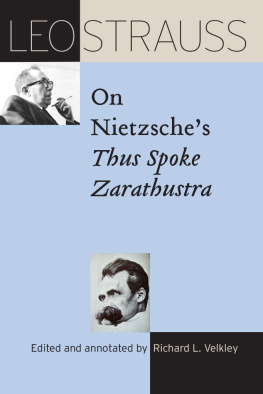
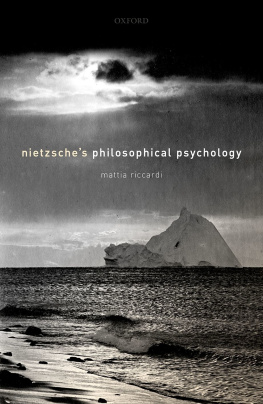


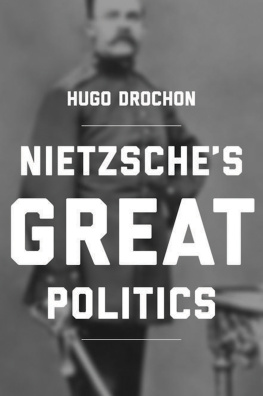
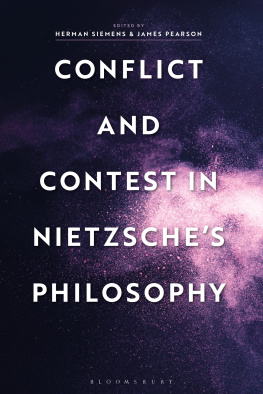
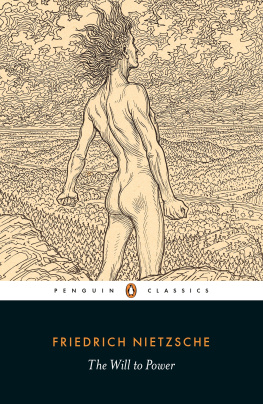
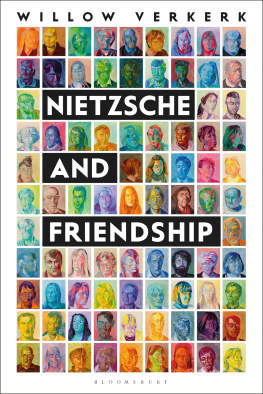
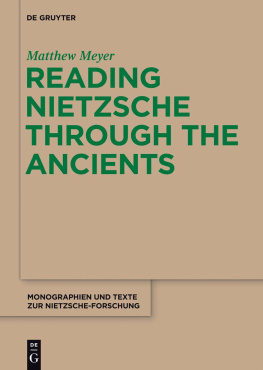
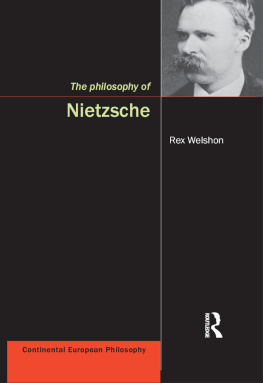
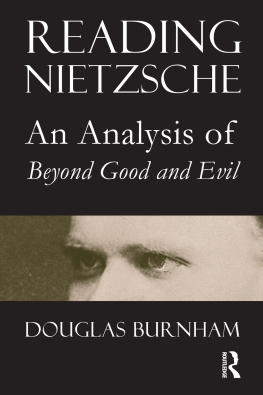
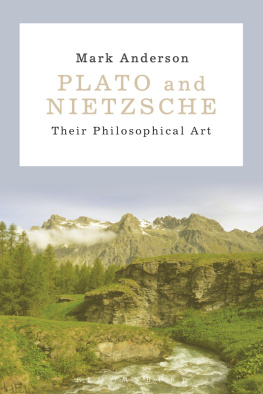
 TM The paper used in this publication meets the minimum requirements of American National Standard for Information Sciences Permanence of Paper for Printed Library Materials, ANSI/NISO Z39.48-1992.
TM The paper used in this publication meets the minimum requirements of American National Standard for Information Sciences Permanence of Paper for Printed Library Materials, ANSI/NISO Z39.48-1992.